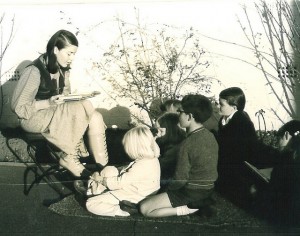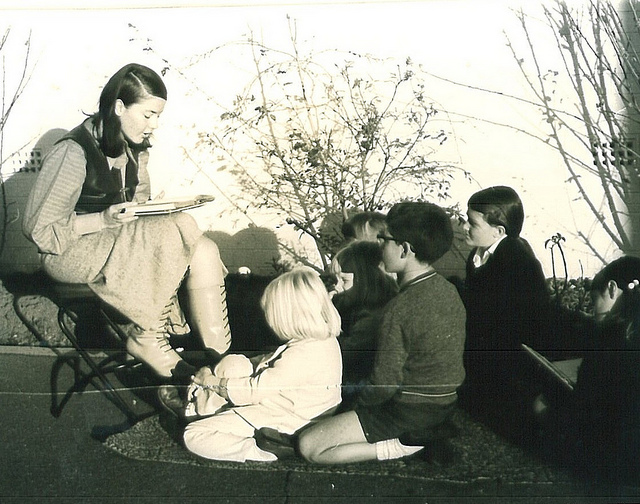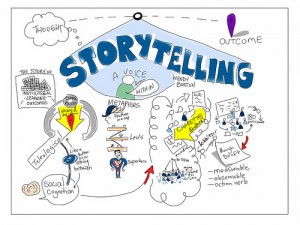When I arrived at the former monastery, roughly ten days ago, I knew by the unkempt and run down buildings, it would not be a pretty sight inside. Despite the numerous buildings that made up the compound, most were locked up and seemingly out of use for several decades. Only one building, just beyond the chapel, looked like it was still in use, as families with young children huddled around the visitors entrance, telling stories and discussing who their children resemble. All the adults have the same concerned, uncomfortable look on their faces, as if to say – I can’t wait until they day I don’t have to come to this place anymore.
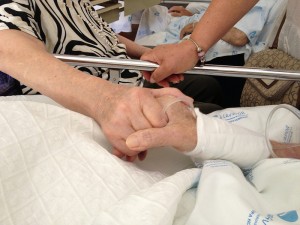 The old sign reads Pulmonology C and as I walk down the odd smelling hallway I notice that in fact it isn’t a hallway. If I jump I can see over the temporary walls into the makeshift rooms that have been created from what is one massive room where I can imagine some 25 years ago everyone was just thrown in all together. Not that much has changed, I estimate, only now there are 6 beds to a room, each room with its own thin 2 meter high walls that allow every hacking cough, fart, or moan to be heard by everyone in the entire wing.
The old sign reads Pulmonology C and as I walk down the odd smelling hallway I notice that in fact it isn’t a hallway. If I jump I can see over the temporary walls into the makeshift rooms that have been created from what is one massive room where I can imagine some 25 years ago everyone was just thrown in all together. Not that much has changed, I estimate, only now there are 6 beds to a room, each room with its own thin 2 meter high walls that allow every hacking cough, fart, or moan to be heard by everyone in the entire wing.
As I walk into my grandfather’s room, I quickly glance at the 5 other beds and their occupants; a young man sitting in hospital pajamas reading the newspaper casually next to his bed. An old man looking quite sick, reaching to over to grab a glass of water, a middle aged man wearing a breathing tube under his nose fast asleep, an older gentleman wearing reading glasses sitting up in bed eating a yogurt, and a charming little old man who has fallen sleep while sitting in a comfy chair next to his bed. And there among the very sick and the not so sick, lay my grandfather, 92 years old, fighting what is certain to be his last battle against pneumonia and a body that is starting to shut down on him. Without his glasses, his teeth, and his loud greeting- I hardly recognize him. But as I approach he greets me, making a quiet little joke about how more days in this place and his beard will be just as long as mine.
The next few days this became a ritual. Take the long drive to the old hospital and sit with grandpa. Tell him stories about what vegetables we have managed to grow in his garden and who called to send him kisses and wish him a speedy recovery. Eventually it would be jello time, the only thing my grandfather seemed to take pleasure in – “It refreshes me”, he would say, as he slurped down another spoon of the trembling red treat, which would usually be followed by a coughing fit. Day after day my mother and I would do this, and with each passing day he would speak less, open his eyes less, and eventually lose interest in the refreshing afternoon snack.
In just one week in such a place, you notice everything going on in the rooms and beds all around. Who seems to be getting better. Who gets lots of visitors. Who screams and moans in pain in such a coarse voice that you find yourself running outside to escape that horrible sound every 30 minutes. And above all, you notice who disappears and why.
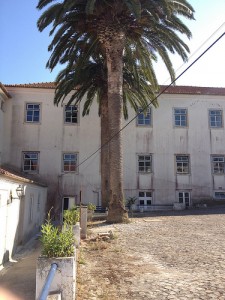 “The man who was sitting up in his bed yesterday breathing heavily with the machine hooked up to him, where did he go?” I asked a nurse. “Where do you think he went?” the man answers me in very matter of fact “use your brain” tone. The man who had been in the corner bed for only three days had held court on his first day, sitting in a chair not attached to any machines as numerous visitors came to chat with him. By the third day he was in bed with an oxygen mask, not chatting to anyone and only his daughter and son-in-law by his side. That night, he died.
“The man who was sitting up in his bed yesterday breathing heavily with the machine hooked up to him, where did he go?” I asked a nurse. “Where do you think he went?” the man answers me in very matter of fact “use your brain” tone. The man who had been in the corner bed for only three days had held court on his first day, sitting in a chair not attached to any machines as numerous visitors came to chat with him. By the third day he was in bed with an oxygen mask, not chatting to anyone and only his daughter and son-in-law by his side. That night, he died.
This story happened three more times that first week. One was an pale looking old man I had helped to reach his water. The next day, his bed was empty, clean sheets awaiting the next patient. I didn’t need to ask the nurse, I could tell by everyone’s behavior what had happened. By the fifth day the gentleman with the reading glasses, who had so often been walking the halls in his slippers and often seemed concern about the well being of my grandfather, he was now in bed with an oxygen mask. His pajama top was opened, revealing his bare chest pumping in an out like it was out of control. He sat in bed for hours, it looked as though any minute he would finally get a handle on breathing, but that minute never came. As I said goodbye to him that day, I smiled and wished him a better day tomorrow. He answered with a stale look in his eyes and gave me the thumbs down. Again I shouted to him and put my fist in the air, “you can do this, I wish you strength!” Still breathing heavily he shook his head no – pointed to himself and then pointed solemnly towards the ground like things would only be getting worse. The next day his bed was empty, the nurse was busy gathering some of his personal items in a bag.
Strangely enough the weakest looking person in the room is the one who is still there, my grandfather. Everyday he is a little less there, and every day a new person takes up whatever empty bed there is. The charming old man who often fell asleep in his chair was sent home. On his way out, still wearing hospital pajamas with his dress shoes, he mumbled best wishes and good health to all as he ran towards the exit. My grandfather, now heavily medicated and rarely lucid, did not even notice. Maybe its for the best, as he told me on his first day in the pulmonology wing, “I this place mark, you either get better or you go crazy.”
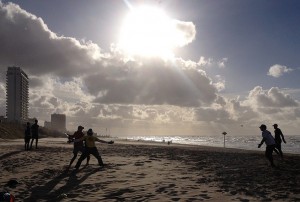 I started this blog under a different title and with a different purpose over 11 years ago. Back then I was moving my life from Portugal to the Netherlands, writing about my travels and things happening in the world. Writing both for me as well as my friends and a few strangers who were crazy enough to read me. My philosophy was write when I want, write often, and try to be creative. It was, as always, personal, spontaneous, and honest.
I started this blog under a different title and with a different purpose over 11 years ago. Back then I was moving my life from Portugal to the Netherlands, writing about my travels and things happening in the world. Writing both for me as well as my friends and a few strangers who were crazy enough to read me. My philosophy was write when I want, write often, and try to be creative. It was, as always, personal, spontaneous, and honest.
